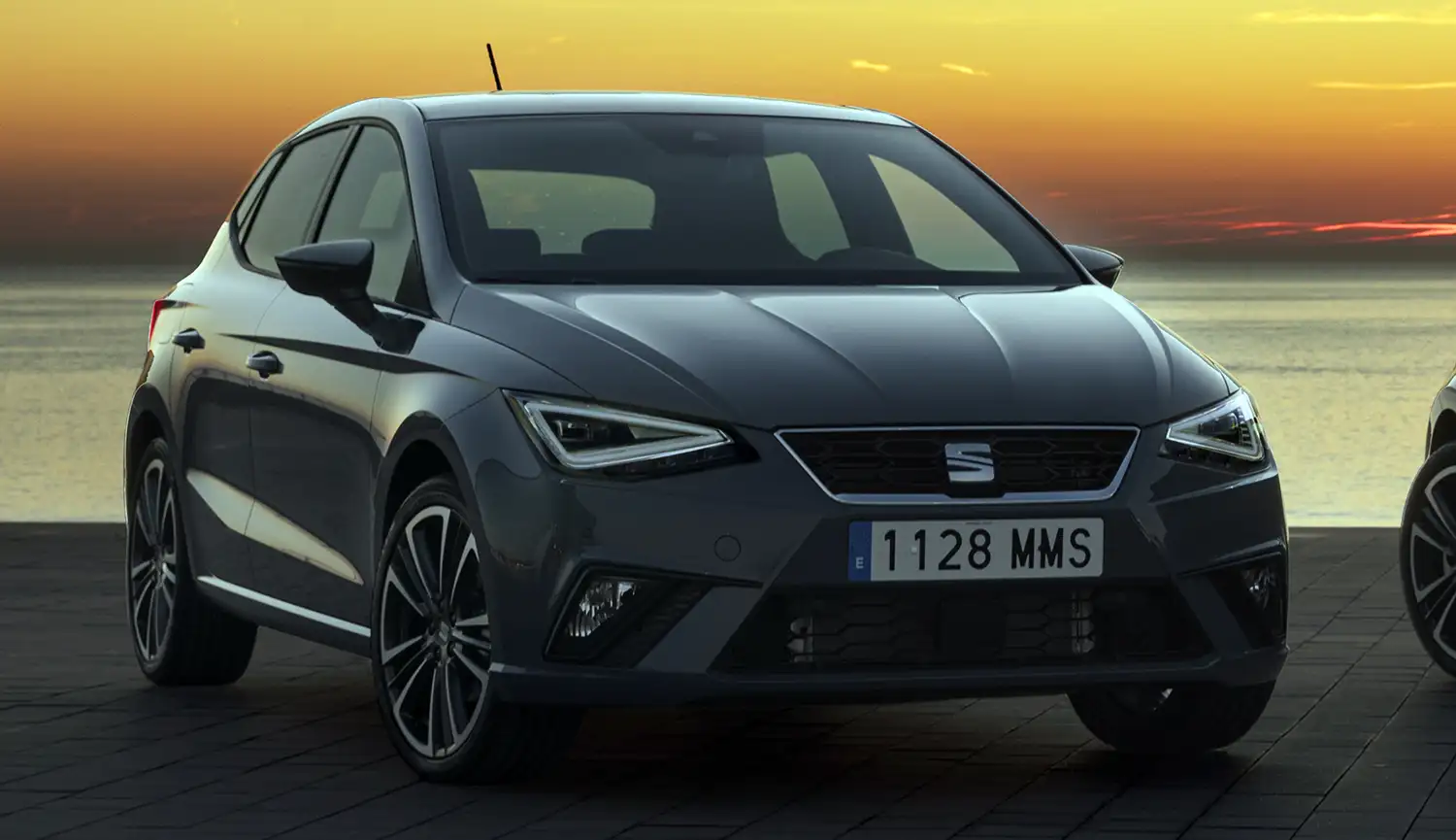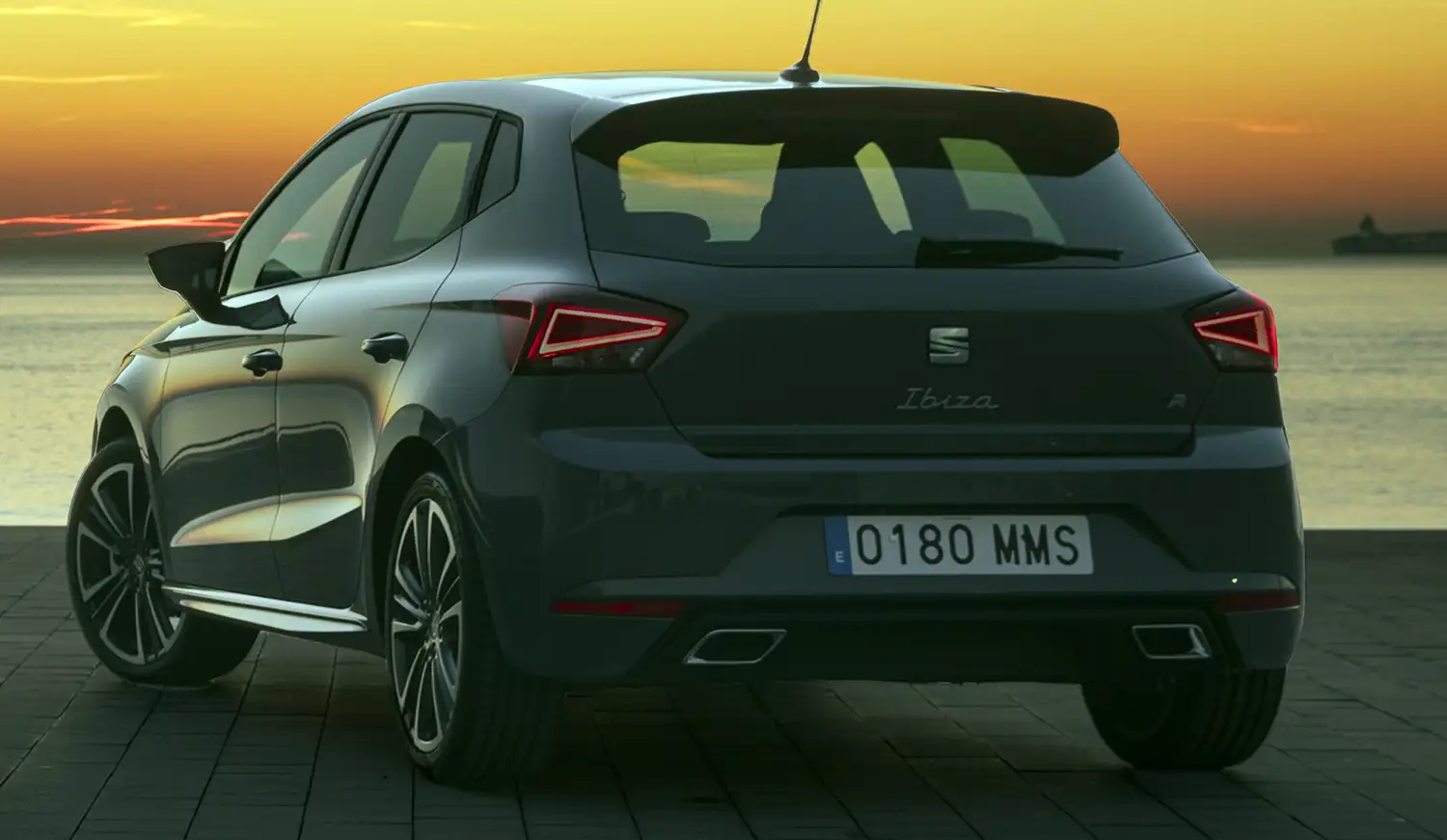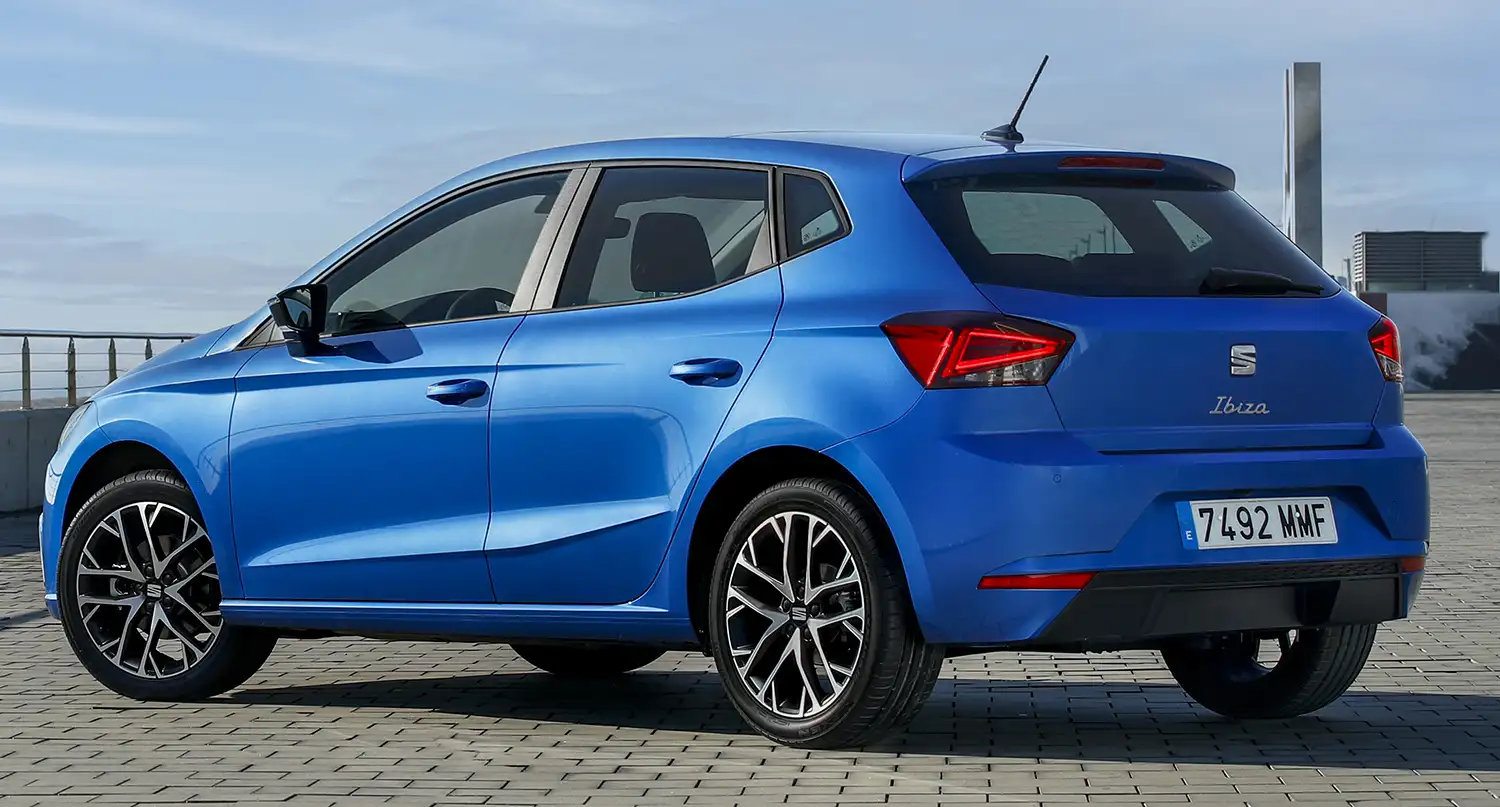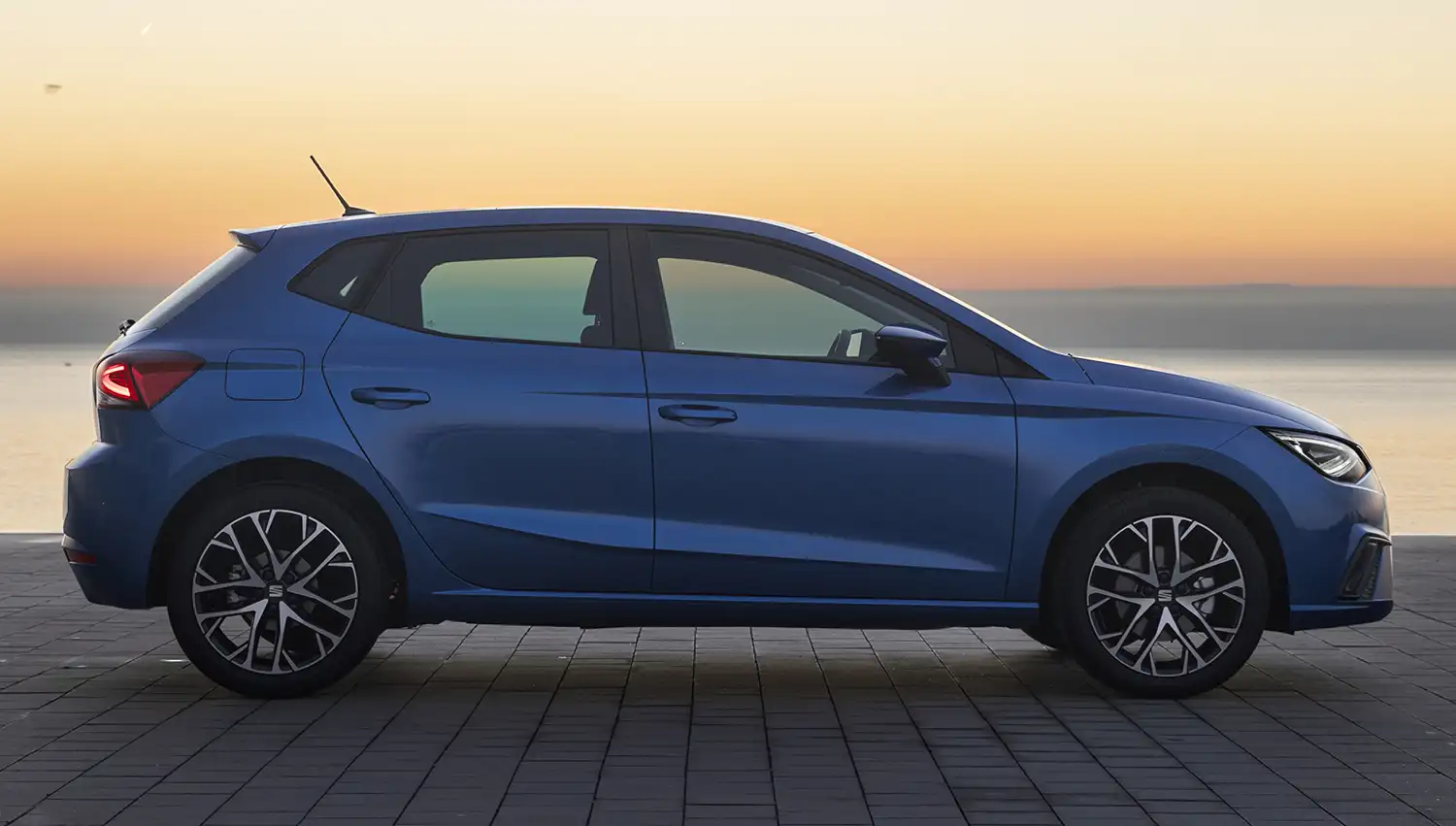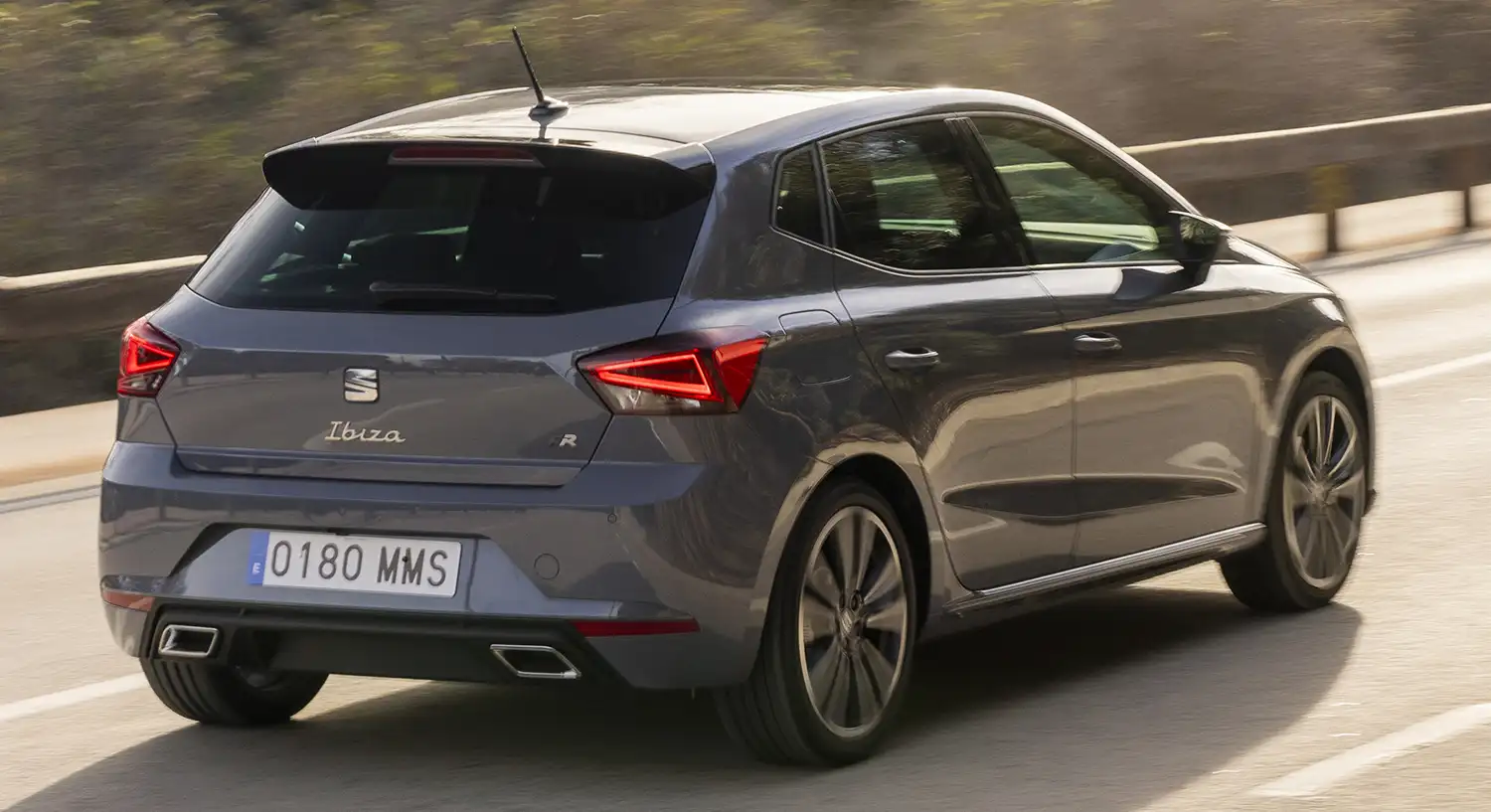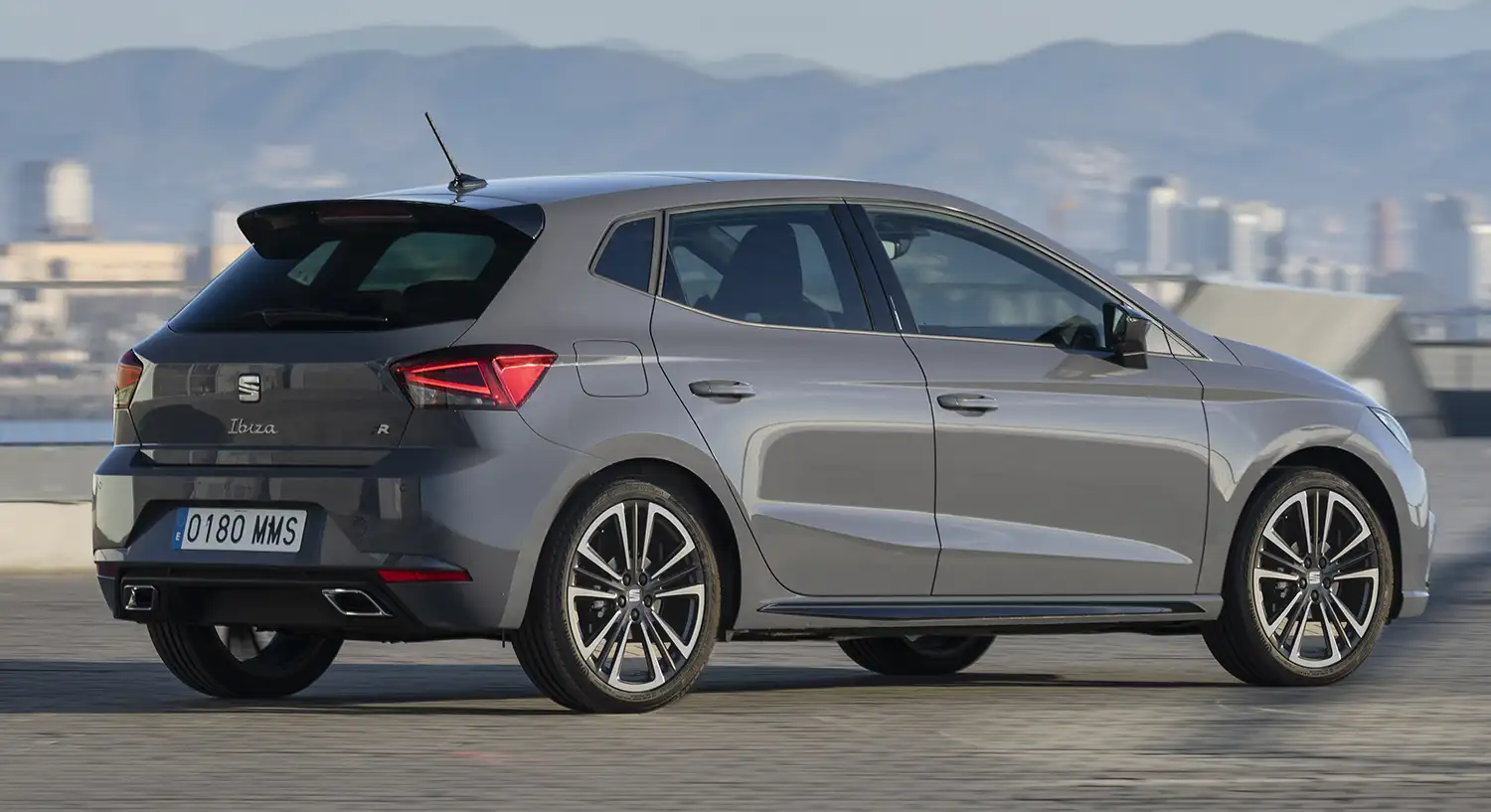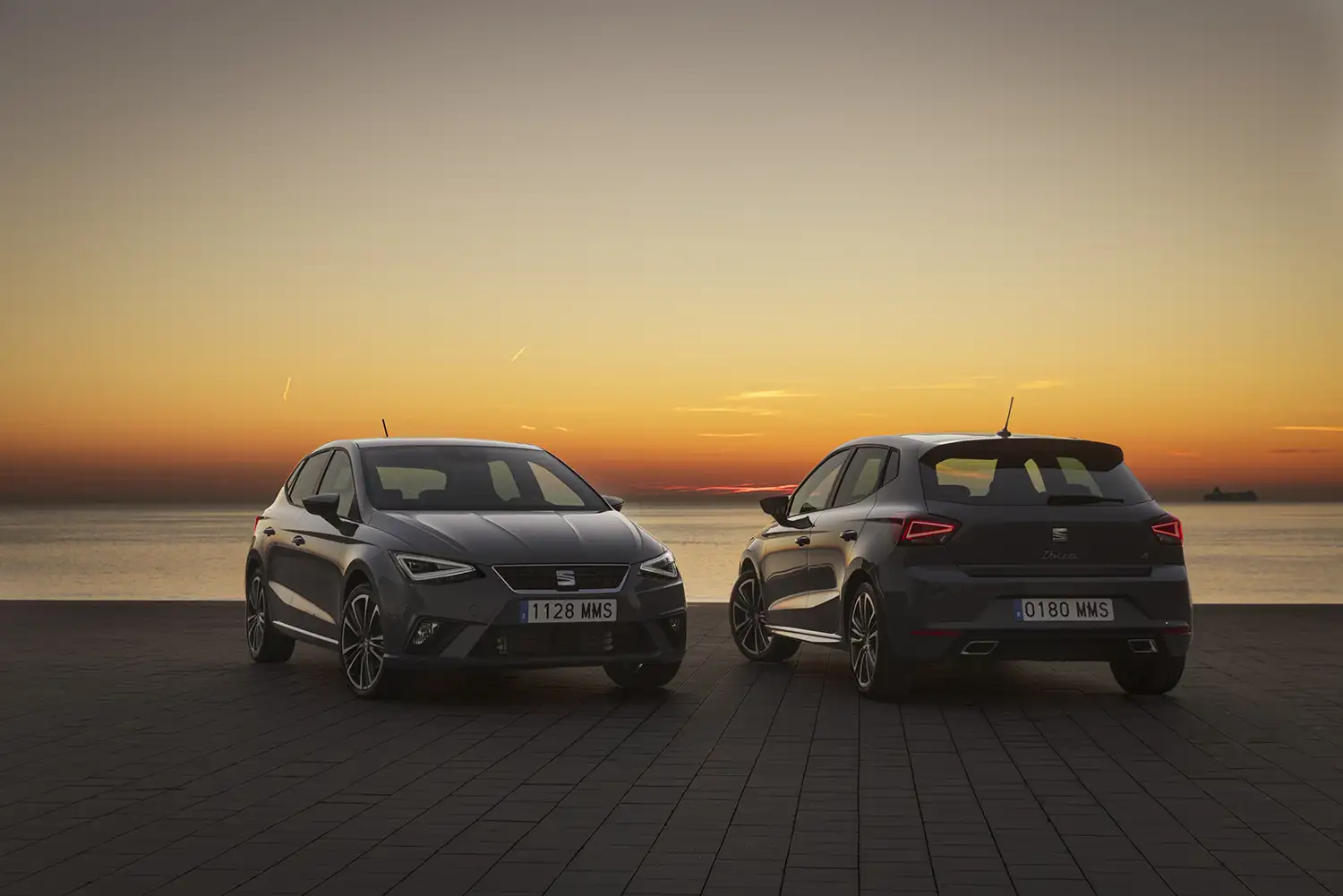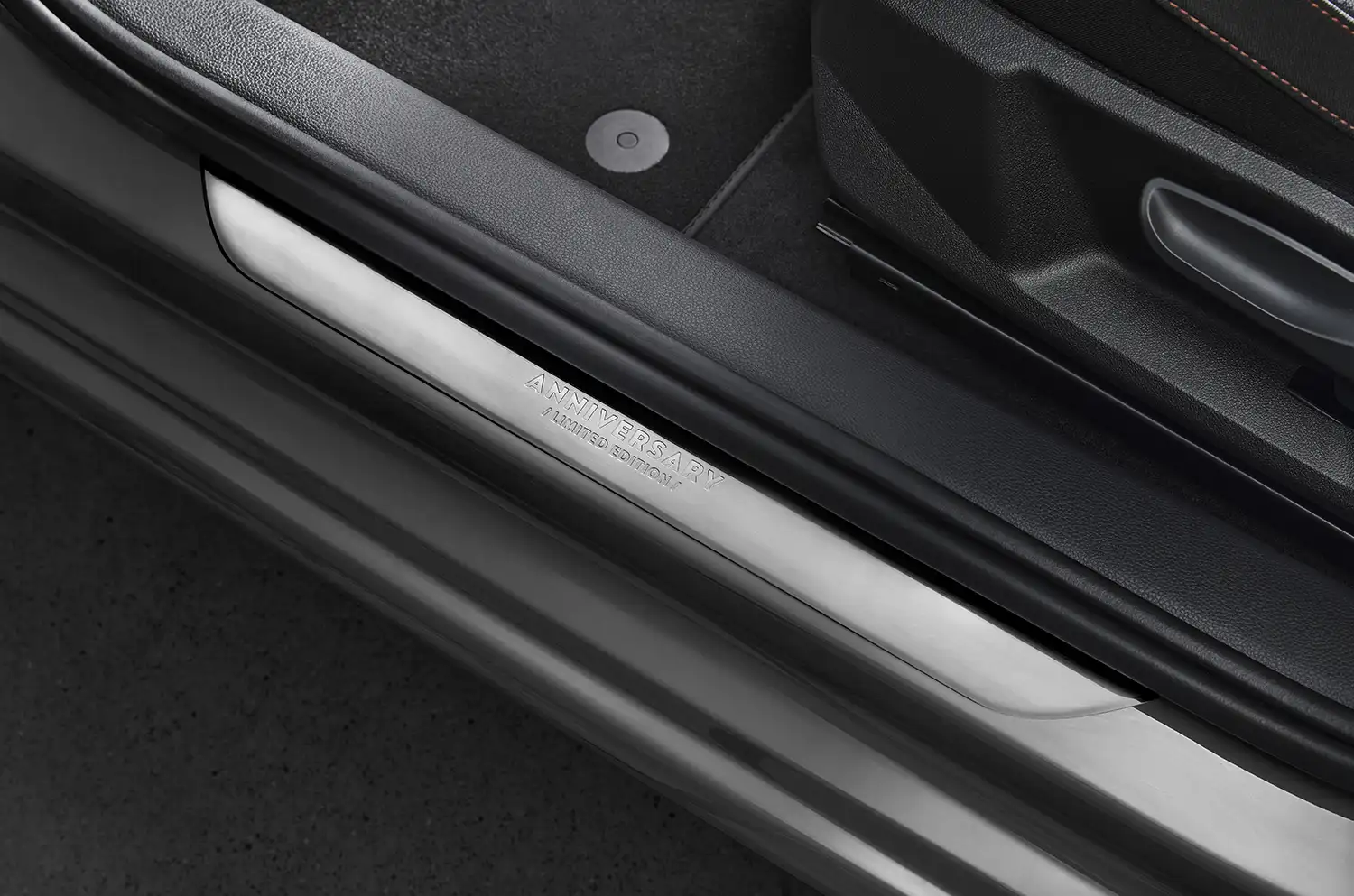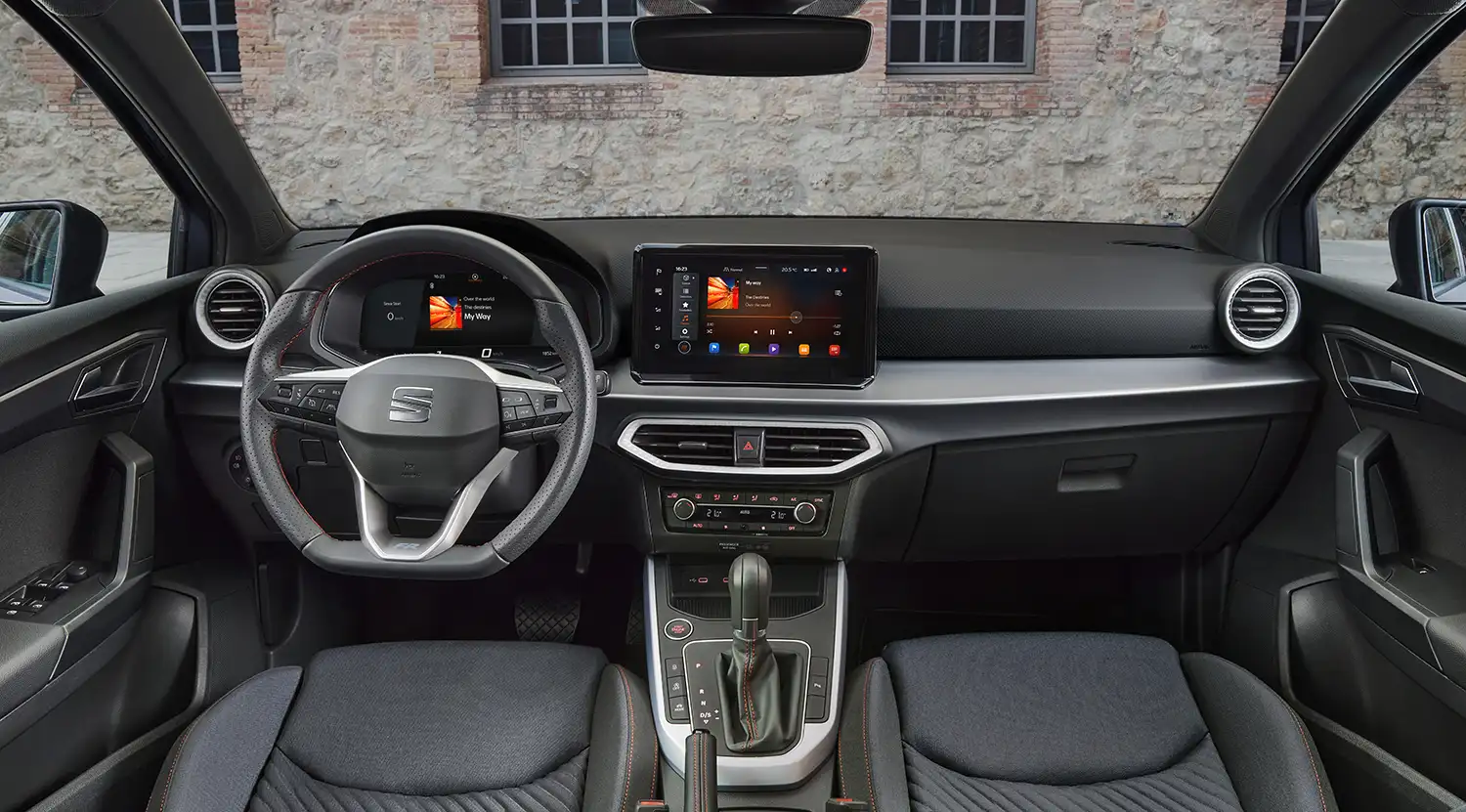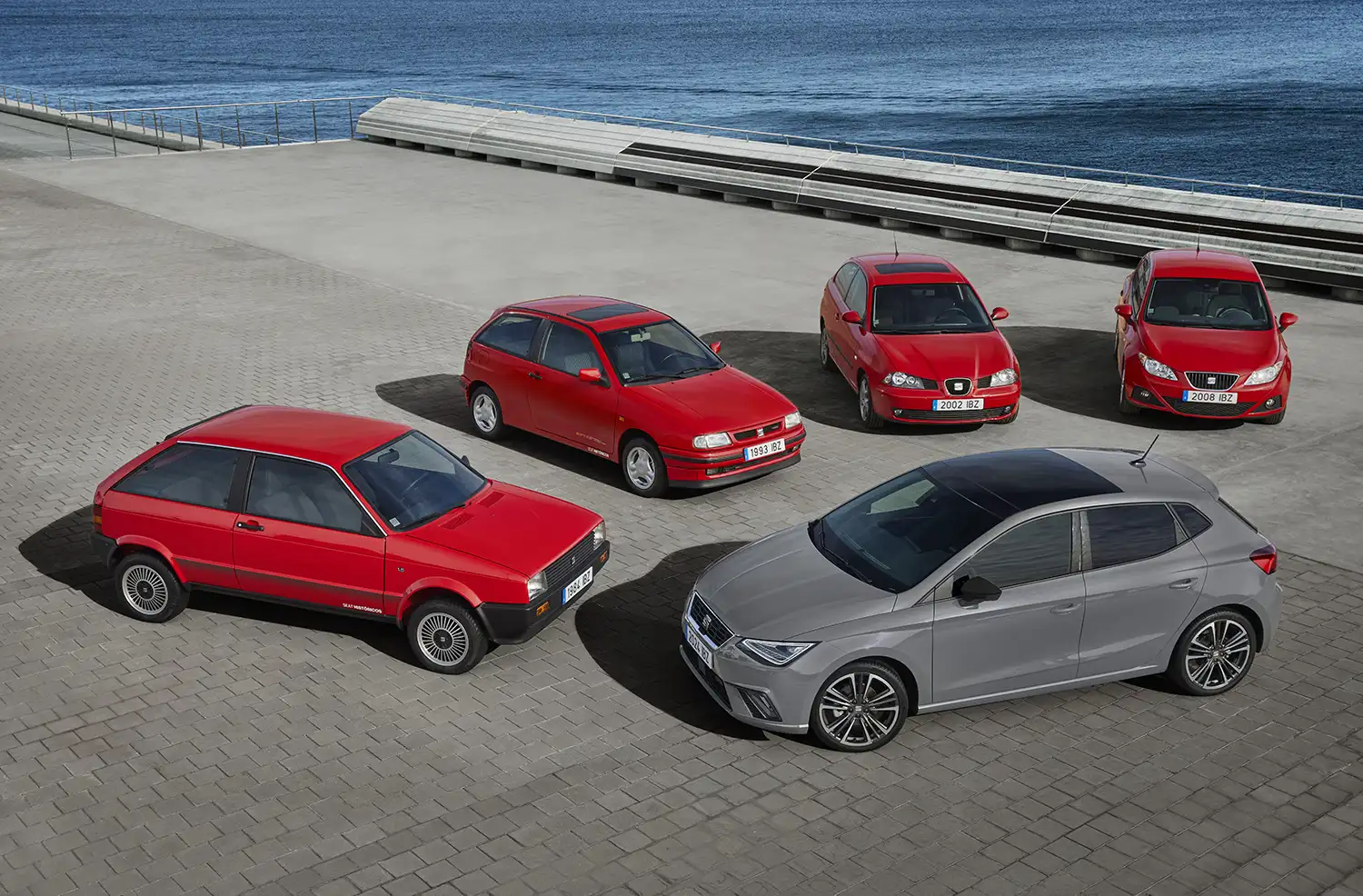
The SEAT Ibiza is celebrating 40 years of continual innovation since its introduction in 1984. The brand’s iconic model was a turning point for the company’s success and has sold over six million units over five generations.
The SEAT Ibiza has delivered great value for the youngest customers, providing the latest technologies and innovations in a vehicle accessible to all.
“Since its introduction, the SEAT Ibiza became a benchmark in the market while also paving the way for SEAT’s success as it worked to grow its position as a global company, delivering vehicles to markets across the world!” said SEAT CEO Wayne Griffiths. “We are now celebrating 40 years of the car that conquered many generations that saw SEAT as the cool and young-spirited brand.”
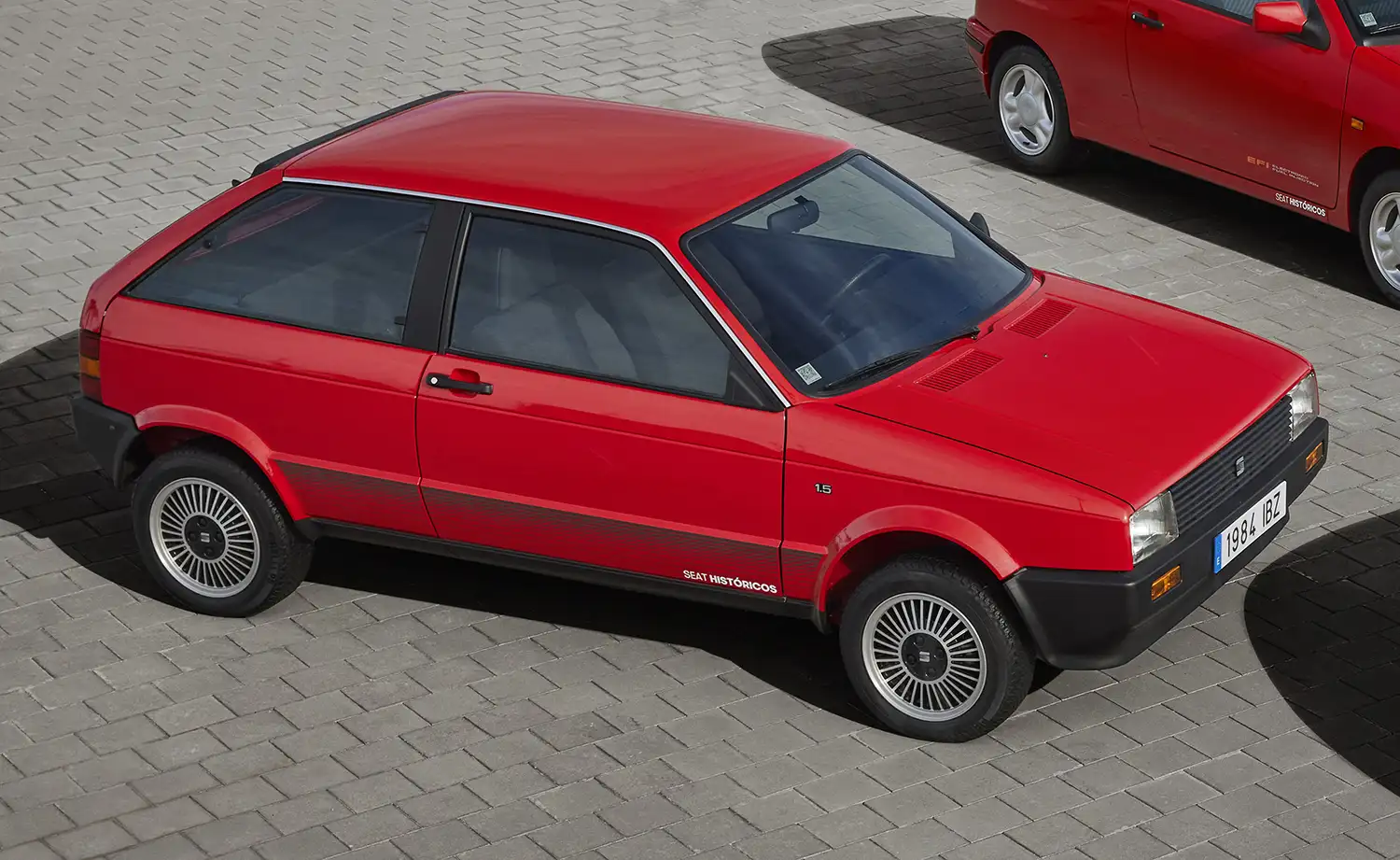
SEAT Ibiza MK 1: A new beginning (1984-1993)
The first-generation SEAT Ibiza was a milestone for the company. It marked the beginning of the brand as an independent manufacturer.
The SEAT Ibiza MK 1 was the first vehicle developed by the brand without the assistance of a technological partner, drawing on internal expertise and that of partners in Giorgetto Giugiaro for the exterior design, Karmann for the interior design and Porsche for the powertrain.
Three trim levels were available – L, GL and GLX – all benefitting from a choice of 1.2 and 1.5-litre petrol engines. The standout model was the top-of-the-range 85PS SEAT Ibiza 1.5 GLX. It was engineered to meet the highest standards – proven in no better way than the Inter-Ibiza Championship, a one-make rally competition, where all drivers used identical 1.5 GLX Ibizas.
The first-generation SEAT Ibiza’s function was also matched by its form. The exterior design was instantly recognisable, and the sports-shaped alloy wheels added an additional layer of appeal that would help it to establish itself in the market.
With so much historic significance it’s little wonder that SEAT keeps two production examples in its collection: two 1.5 GLXs. The first is chassis number 407, an early example from the 1.3 million first-generation Ibiza’s built. A car that is used extensively in historic rallies – in 2018 it even won the Catalunya Historic Rally. The second is an immaculate vehicle kept by a SEAT dealer and has just 64km on its clock and is now registered as a historic vehicle.
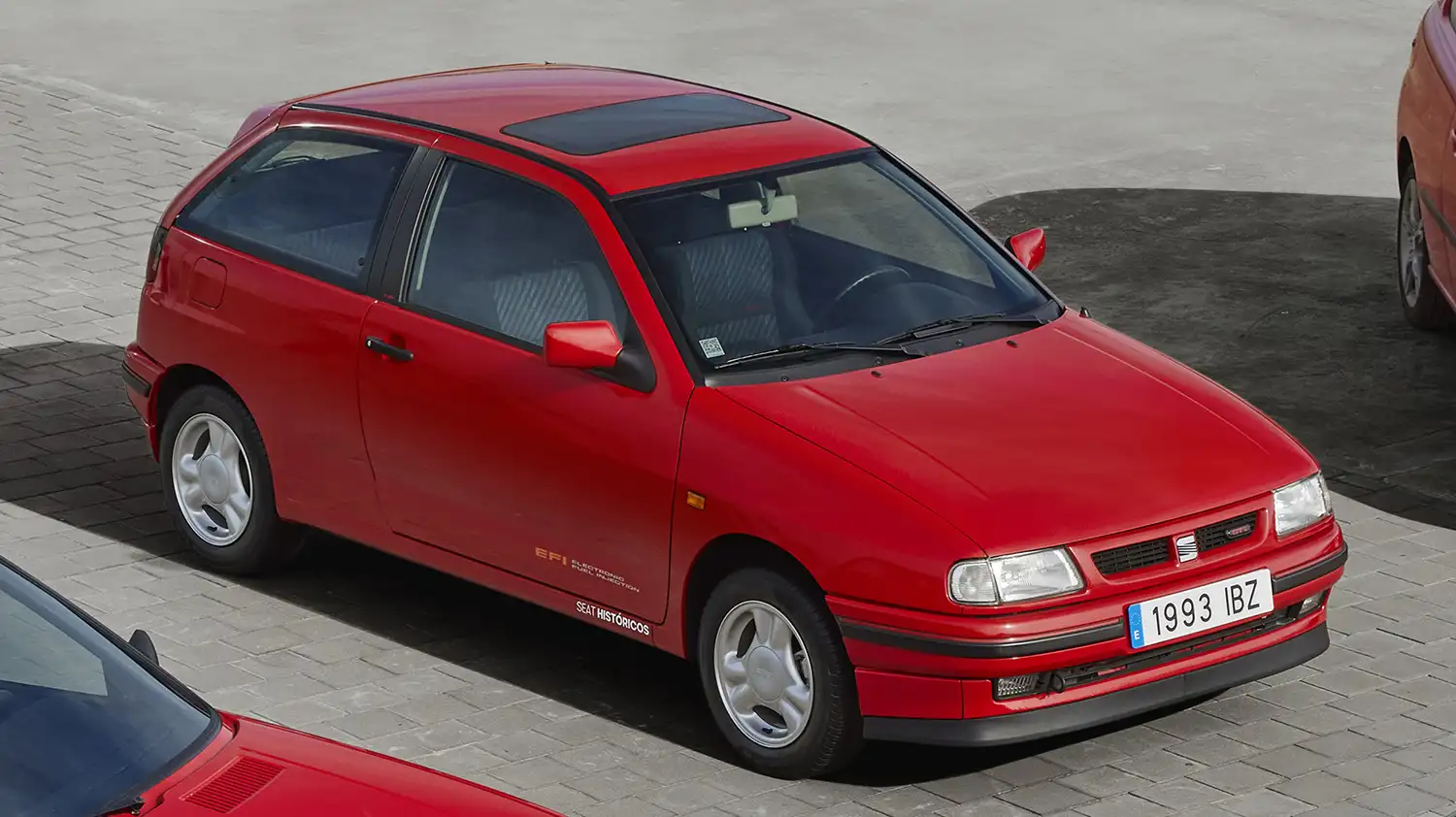
SEAT Ibiza MK 2: The expansion/birth of Martorell (1993-2002)
The beginning of the 1990s brought with it the introduction of the second-generation SEAT Ibiza. Again, designed by Giorgio Giugiaro in close collaboration with the Martorell Design Centre, the vehicle’s aesthetic became more rounded, aerodynamic, and sportier.
The car added more equipment and greater mechanical advancement, but arguably its biggest impact was helping take SEAT’s Martorell headquarters up a gear. The vehicle was engineered at the Martorell Technical Centre, but its release signified the start of plant operations at the facilities. A huge milestone for SEAT.
The investment in the latest generation SEAT Ibiza was evident from its success. Its new platform gave it compact dimensions but made it big on the inside. It didn’t shout about its prowess but discreetly hid a 2-litre petrol injection engine under its bonnet, the largest displacement in the segment. Fast, agile, easy to drive (it incorporated power steering), it was light at 1,010kg and with delivered dynamically.
The car’s talents were highlighted by SEAT at successive Gravel Rally Cups where it demonstrated both its sportiness and reliability, The second generation of the Ibiza grew so much that SEAT began participating in the World Rally Championship, including the legendary Monte-Carlo Rally, and winning the FIA 2-Litre World Rally Cup three time between 1996 and 1998.
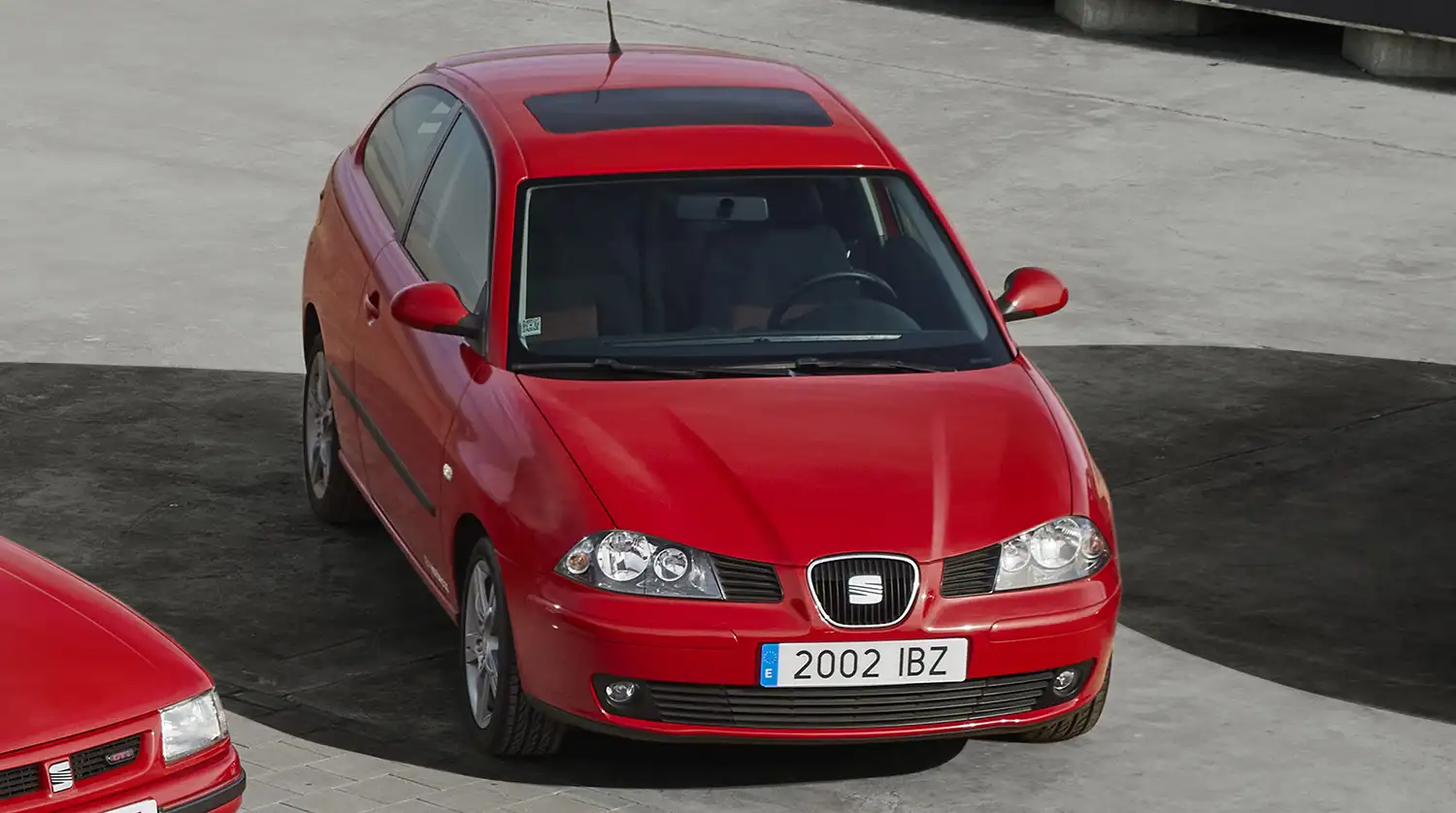
SEAT Ibiza MK 3: Engineering, efficiency, power, and dynamism (2001-2009)
Unveiled in 2001 at the Bologna Motor Show, the third generation SEAT Ibiza signalled a significant leap in manufacturing quality, engineering, dynamic performance, and design language.
Legendary designer Walter de Silva working with the Martorell Design Centre brought a new level of energy and sportiness to the line-up. The SEAT Ibiza featured an undeniably striking silhouette to the segment that underlined its increased agility.
The new “Agile Chassis concept” was used across the SEAT Ibiza’s entire range giving the vehicle its incredible dynamic capabilities. Its performance credentials were ened further by the increase in the power bar, with engines of up to 130PS.
By 2004 the Ibiza was already celebrating its 20th anniversary, not only a reflection of the cars incredible impact on SEAT, but the market too, underscored by more than 3.3 million units manufactured across all three generations. And what better way to mark the success of the small car than the introduction of new sporty versions that would become the Spanish brand’s enthusiast cars of choice. Welcome the FR trim. The SEAT Ibiza FR was offered with 130PS 1.9 TDI diesel and 150PS 1.8-litre petrol turbo engines.
The MK 3 SEAT Ibiza continued its developmental journey, with more variants and improvements introduced to the line-up. In February 2006 the SEAT Ibiza debuted a new, more modern, and yet more sporty image with new interior trim and new bumpers on a range that, in its home market, offered 18 versions and combined five trim levels with no fewer than 11 engine choices.
And as consumer outlook changed and greater emphasis was placed on efficiency and environmental concerns, the SEAT Ibiza adapted to the shift. In 2007, equipped with an 80PS 1.4-litre TDI engine and diesel particulate filter, the first-generation Ibiza Ecomotive, instantly became the greenest car in its segment with CO2 emissions of only 99 g/km.
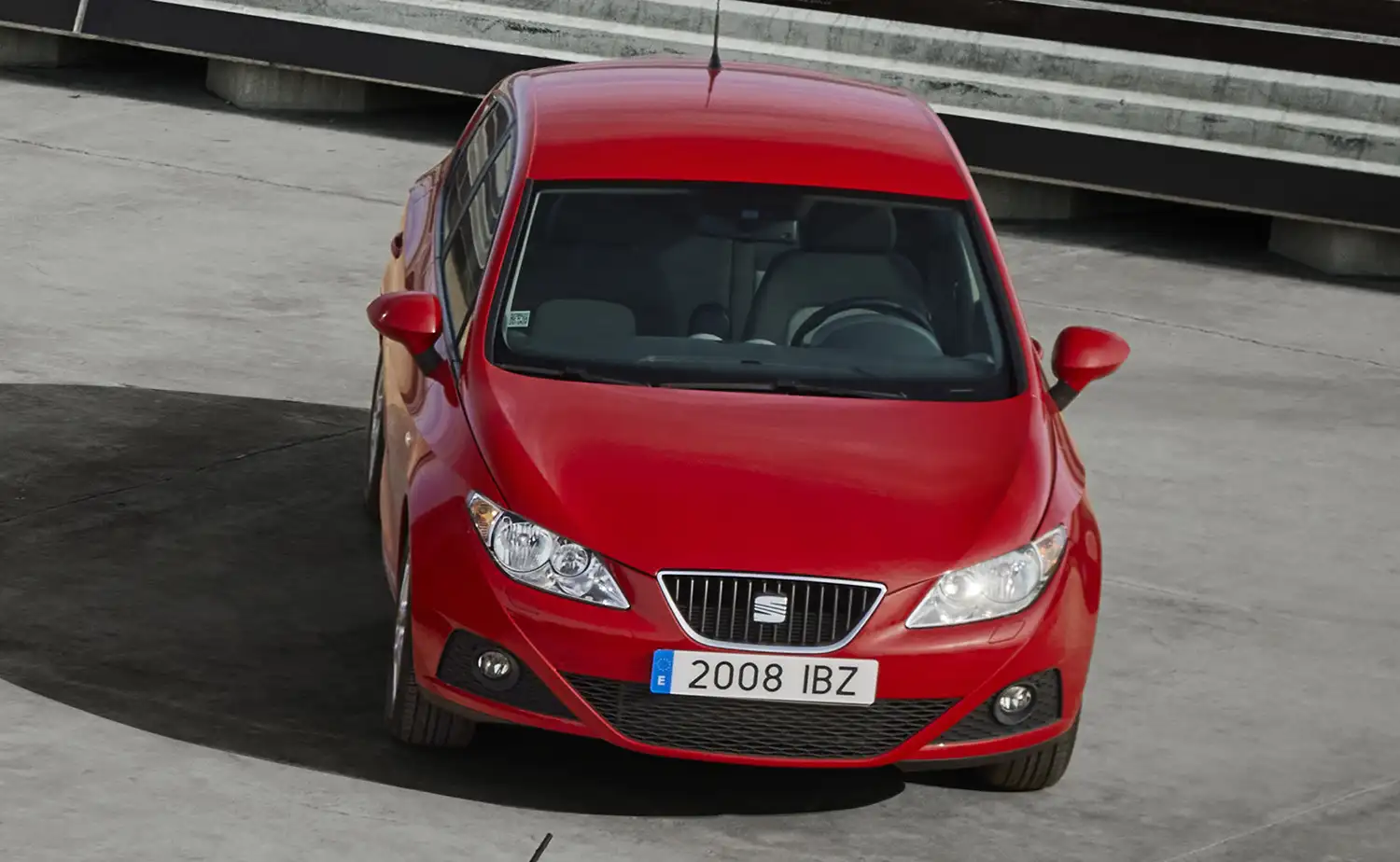
SEAT Ibiza MK 4: Combining design and technology (2008-2017)
SEAT took a new approach to the fourth generation SEAT Ibiza, building on the previous versions, the development team worked to match a new design expression with some of the most innovative technologies available. All as the vehicle reached the milestone of 25 years in production in 2009.
The new model debuted designer Luc Donckerwolke’s ‘Arrow Design’ concept at the front, lending the new Ibiza a distinctively sporty look thanks to the use of sharp geometric lines as well as the evolution of the brand’s classic “Dynamic Line” sweeping across the sides. It was offered as with 3- and 5-door bodies, and even an estate version.
The latest SEAT Ibiza’s looks were only part of the vehicle’s story. Its equipment levels soared, helping to put the urban car in pole position in its class, with the likes of head-chest airbags, electronic stability programme, Hill Hold Control and low tyre pressure warning all available.
Euro NCAP crash tests validated the work carried out by the Martorell Technical Centre, resulting in five stars for passenger protection, four stars for child safety and three stars for pedestrian protection.
This generation Ibiza also featured excellent dynamics thanks to the use of a brand-new Volkswagen Group platform. A key ‘first’ for it was state-of-the-art seven-speed DSG gearbox mated to the 105PS 1.6-litre petrol engine for the first time in its segment. Among several significant advantages of this twin clutch system, it delivered greater driving comfort without affecting the traditional sporty nature that’s integral to all SEAT models.
Engine options expanded to cover the need for both efficiency and performance with a suite of smooth and willing petrol and diesel powerplants with outputs from 70PS to 105PS.
And its eco credentials took another step forward with Ecomotive versions laying claim to be the joint lowest emitting five-seater in the class with an output of just 98g/km based on the official test cycle of the time.
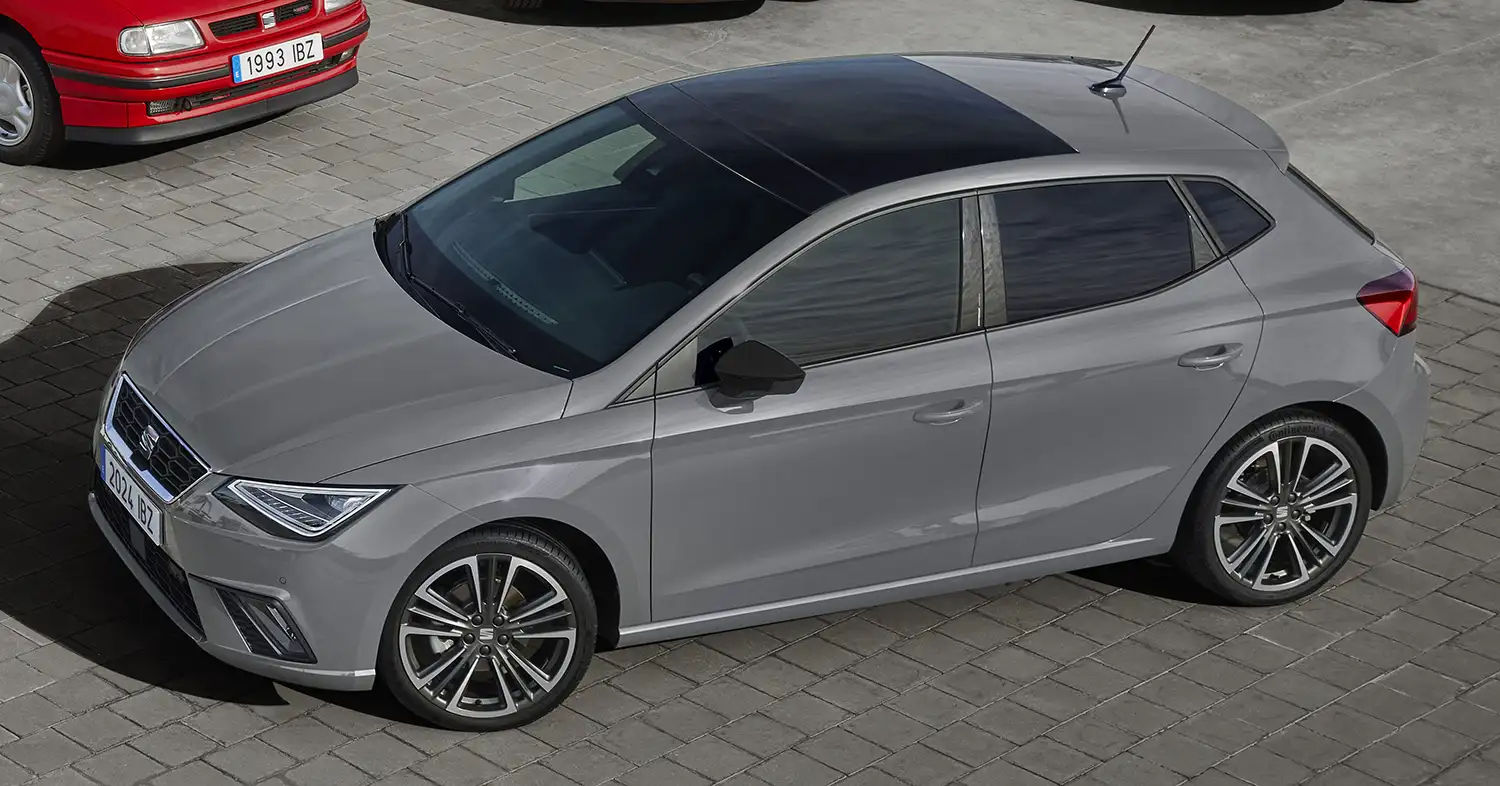
SEAT Ibiza MK 5: The digital revolution (2017-present)
The fifth generation SEAT Ibiza was designed to meet the shifting demands of its customers; it needed to deliver the style, passion, and dynamism that the brand stands for, but bring the Ibiza into the era of environmental awareness and digitalisation.
Developed in Barcelona on a totally new platform – the Volkswagen Group’s MQB-A0 – the SEAT Ibiza delivered great technological content, driving dynamics, and comfort. Designed by Alejandro Mesonero-Romanos, the Ibiza’s silhouette emanated the SEAT DNA, characterised by the Full LED triangular headlights and the body’s dual blister on the sides.
Inside a revolution took place. The latest SEAT Ibiza gave full control to the user whether in the cabin or out of the vehicle completely.
Android Auto and Apple CarPlay gave access to a plethora of functionality and information, and natural language voice control made interacting with the vehicle intuitive and instinctive. While out-car connectivity was enhanced by SEAT CONNECT.
The SEAT Ibiza became the brand’s safest model in its history. New advanced driver assistance systems such as Lane Assist, Side Assist and Traffic Sign Recognition provided security no matter what the driving scenario. And Travel Assist technology delivered semi-automatic driving no matter what the speed to offer reassurance on both long and short journeys.
The latest SEAT Ibiza doesn’t lose any of its fun to drive. The powertrain line-up delivers enough dynamism to make sure that the experience is just as involving whether you were taking on the city streets or heading out on the open road.
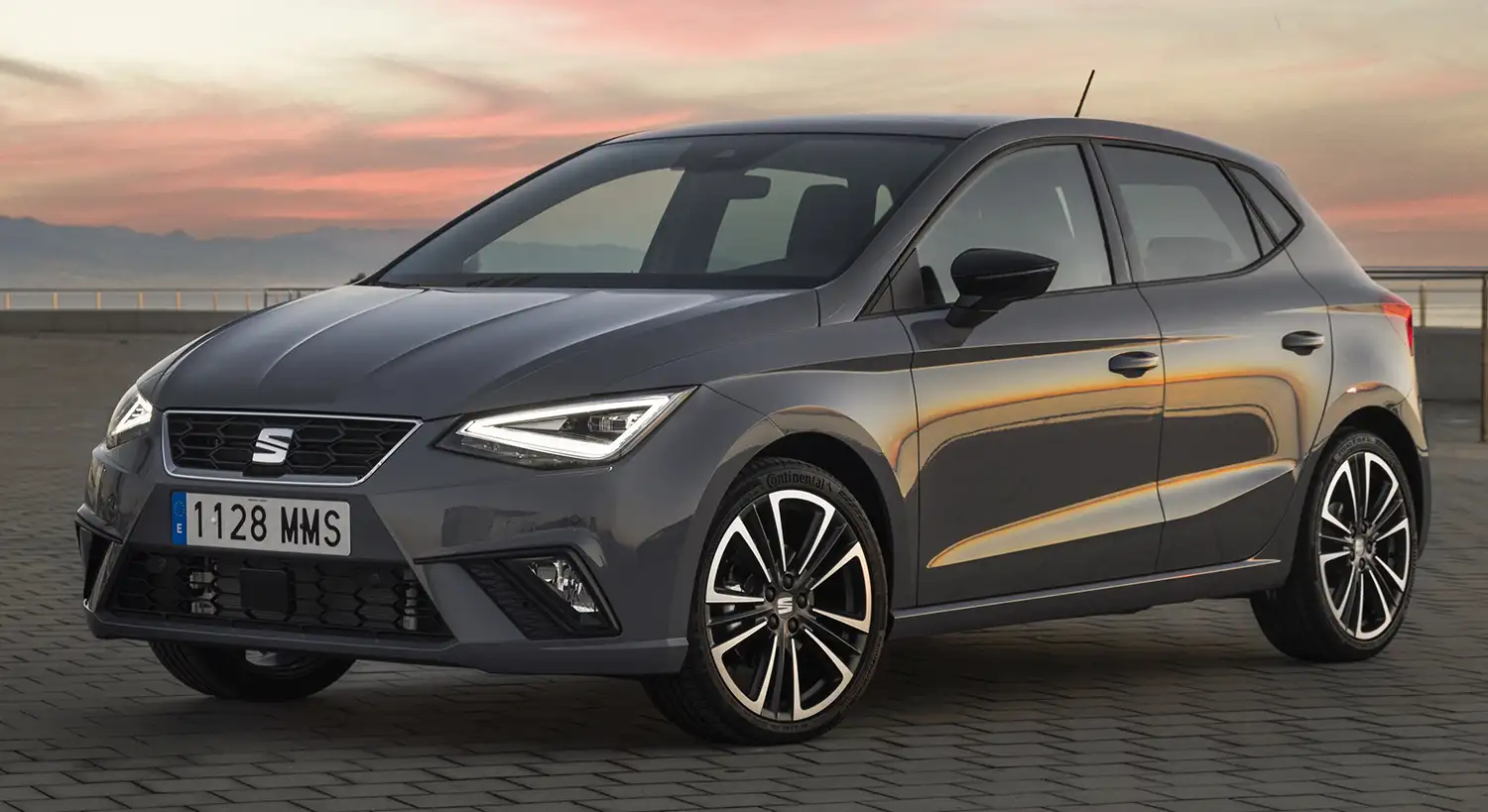
SEAT Ibiza Anniversary Limited Edition
S
EAT celebrates the 40th anniversary of the Ibiza, the brand’s most iconic model, with a limited edition called “Anniversary”, featuring new equipment and colours, as well new alloy wheel and design cues.
The vehicle’s exterior design benefits from the exclusive Graphene Grey colour on the body and Cosmo Grey on the 18” alloy wheels, as well as the standout lasered “Anniversary Limited Edition” logo on the car’s B-pillar.
While inside, the cabin is given a new twist with the introduction of exclusive textile Bucket seats, giving front occupants a new level of dynamism and comfort, a new Dark aluminium matt finish for the door and console as well as a lasered “Anniversary Limited Edition” logo on the doorstep.
The SEAT Ibiza Anniversary Limited Edition will be available from Q1 2024.
